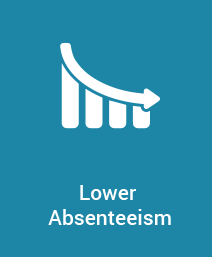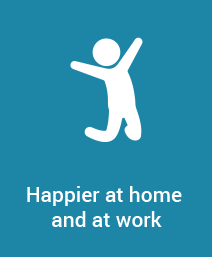The Role of the HSA
Stress is not reportable to the HSA. No illnesses are reportable and stress, not actually being an illness is not reportable. There is no duty on employers to report absences due to stress. There is no method for investigating stress on a par with investigating accidents. However, employers are bound under the 2005 Act to protect employees from all hazards which can lead to injury. A stressor is a potential hazard which can lead to personal injury in the form of mental ill health. Risk assessments should include assessments of stressors in the work environment, control measures and monitoring and review, in consultation with staff.
What is stress?
There are many definitions of stress. Just as there are many definitions of fatigue, of mental health and upset. These terms describe a wide range of experiences and not entirely clear cut.
Stress is a negative experience/ feeling, associated with new physical symptoms. These including increased heartbeat, swiftness of breath, dry mouth, upset stomach and sweaty palms and over the longer term, more serious digestive upset, cramp and raised blood pressure/cardiovascular disease.
Psychological symptoms range from racing thoughts and speech, , lack of impulse control, and feelings of being overpowered, losing control and fearfulness generally. People behave differently to their 'normal' behaviour when under stress. They may be angrier, more confrontational, show less time for others and impose an urgency on situations which is unrealistic for those around them.
Other characteristics can include fatigue, proneness to upset, withdrawal, self neglect and depression. There is no telling which way a person will react to the stress situation, but each person will behave differently to their previous non-stressed state.
When we are aware of our feelings, thoughts and behaviours as well as our bodily reactions, we can assess ourselves as either relaxed, under slight pressure which we are coping with, under pressure we are finding challenging but acceptable, or under excessive pressure which is causing us stress.
Coping with stress
We all have different coping abilities and a different tolerance for stress. There are those, often categorised as ‘Type A’ personalities, who tolerate relatively high stress levels and thrive on the stimulation and alertness brought about by stress. There are others who have very low tolerance levels and thrive in slow moving environments with low stimulation and even paced work.
Coping skills can be improved through regular training for specific tasks – for instance, if a person finds meeting and greeting people stressful, increased exposure to this, skills training and familiarisation can give them the coping skills to reduce their stress from this experience.
Stress management training and increasing self-awareness and learning to react effectively when we becoming stressed are all important in helping individuals deal with their stress reaction. We may need to take more exercise, build in more relaxation time, alter our social habits, alter the way we view things, change the work system in some way or re-engineer our work so as to reduce our exposure to the cause of the stress.
The occupational health approach is to reduce the stress from source, initially, then reduce the person-stressor interaction, and finally, give protection to the exposed person, when they are exposed. The approach usually involves the individual, the department or section in which the individual works and the organisation, so that general and specific stressors are reduced or eliminated, as far as possible.
Many aspects of personal, family and work life can cause stress, in that there are pressures embedded within all of these areas of our lives.
The HSA is tasked with helping develop and promote preventive systems at workplace level. The Work Positive Programme is an assessment of employee’s perception of the stressors they recognise due to work factors only. Numerous factors at work can lead to potential stress and diminish our emotional and physical well being if gone unsupported or unchecked.
These aspects of the workplace can be labelled psychosocial hazards in some health and safety models, because they threaten mental health in the same way as physical hazards threaten the physical safety and health of employees.
Social support is a mediator of stress. It helps reduce the effects of a stressful situation. We all know that when we feel we have a person or persons to talk to, problem solve with or share a difficult experience with, it help relieve some of our distress. In stressful environments, where support is available and accessed, the perception of the stressor and the resultant stress will be reduced.

























